Sometimes blog surfers hit a past blog entry of mine and leave a comment so interesting, so intellegent, that I just have to give 'em props.
A fellow (I assume) left one on my blog today on an entry entitled "The Kinks In The 70's" (April 25th), and I thought it worth sharing. His handle's "JACKO", but unfortunately his profile doesn't allow one to go any further. Jacko, if you're reading this, you really should start a blog, dude!
To me, the "COMMENTS" section is the most interesting part. The folks who read this blog are all passionate about music, and it can get...interesting. Philbert, Rumproast, Holly, Hal, Thom, Frank, Rob, Jim, Rich, Tammy, John, etc etc etc have all left amazingly insightful, brilliant, opinionated and offtimes very funny comments. They are what make this blog real, and human. All are welcome and all are very much appreciated. Keep 'em comin'!
Here's JACKO's alert, bright, keen, quick-witted, sharp, smart, intelligent response to the entry:
" I stumbled in here by accident...what a great discussion! I'm a huge Kinks fan. First thing that struck me interesting about Uncle E's original post is the 'holy trinity' concept. For years i've said there was a big four, Beatles, Stones, Kinks and Who. I've also rolled my eyes a little whenever someone tried to make Zeppelin or Floyd a part of that club.
Not that they don't deserve the acknowledgement. But those were 'second generation' British legends. Everything that followed the initial Invasion '64-66 stemmed from that big four. All the lesser and later acts emulated the style of one of those four. Garage/Punk, Psychedelia, Folk, Music Hall, Country, the lyricism, the thematic album statements...every strain of their experimentation was followed by others. Only Dylan's innovations, and perhaps Brian Wilson among outsiders can be said to have been as pervasive down to the most obscure garage band in those days. The influence of Hendrix, Lou Reed, Zappa, Neil Young and the other titans was to be felt and assimilated after the initial burst. Even Clapton's best work didn't occur until years on.
Ray Davies' artistic growth mirrored Lennon and McCartney's in many ways. Like them, he had a sustained period of concentrated brilliance from '64-70, roughly. From that point on, there were many moments of offhanded greatness, but nothing quite as focused or as fresh. Perhaps he, like they, had simply already offered their essential innovations to the world in the 60s, and was merely trying to remain viable once the youngsters had caught up. There has often been a feeling of aftermath about the later work of many 60s legends in that way.
The 'quintessentially English' theory has some teeth. But there is more to explain what happened to them commercially. For one, at that time, Americans were enamored of all things British, so I tend to downplay that a bit.
I look at it as being more a function of who Ray Davies was. He was an introvert. Lennon and McCartney were more extraverted in their songwriting and musical expression. They tended to 'present' their personas outward, musically speaking. So did Jagger and Richards. A large part of Rock n Roll has been the showing off/exhibitionism element, after all. This made it an easier reach for the audience to identify with them.
But Ray Davies wasn't like that. The secret to the Kinks has always been, they don't bring themselves over to you or overwhelm you with their sound. Just like the introvert behind the pen, they tend to draw you into their world. You have to make an effort, as a listener, to get to know him on his own terms. To allow yourself to be drawn into someone else's world. You become involved with him, essentially. Like a longtime secret penpal.
He was a role model for other sensitive, introverted songwriters in this regard. He and Brian Wilson were the first to really betray a non-romantic, emotional, sentimental, nostalgic sensibility. To bear their hearts openly. It was poetry, but for the writers it was also confessional. Neil Young, Bryan Ferry and others would follow along in those self-effacing footsteps later on. You can enjoy their songs on the surface in passing/on the radio/as a casual fan, but really understanding it is about being invested emotionally with him as a devoted fan.
A simpler aspect is in the very sound of their music. They kicked things off with some blues-based riffers, like their contemporaries, but that's not really who he was. And it confused the public. He wasn't going to keep writing 'You Really Got Me', or 'Satisfaction' or 'A Hard Day's Night', for that matter.
Whimsy and nostalgia always played better with the British. Americans expected guitar driven rock, largely. Which is precisely what doomed them as a singles act, as well as that of another underrated, first class band of the day, The Zombies. Three chords, a solo and a memorable hook is what they wanted. But he was going to different places altogether.
Pete Townshend admired him because he was also an introverted, sensitive songwriter, though that fact was often lost in the bombast of The Who's live act and the bluster of their frontman/vocalist. Townshend always tried to balance that out with some very delicate, decidedly Kink-like vocal harmonies and dynamics.
The Kinks themselves didn't follow the formula and hide behind the loud guitars, at least not in their prime. They were always at their best when they didn't, for it allowed Davies to do what he did best, wear his heart on his sleeve for all to see, and share witty observations and absurdities to make the personal insight worthwhile.
In my estimation, Davies the pop composer/songwriter was the equal of Lennon/McCartney, Wilson and Bacharach for that matter. For all the other great work they did, the '65-70 stuff is their real legacy. Kontroversy is the equal of Help or Out Of Our Heads. Face To Face stands right there with Rubber Soul or Aftermath. Something Else, Village Green and Arthur are as brilliant and vibrant in their own way as anything else from those years, as were Lola and Muswell Hillbillies. Maybe even more so in that they were so unique and enigmatic and so beyond trend, if not remembered as such in the general public's collective memory.
In those days he was a leader in innovation, creating a magical private world, even if not many were listening. His work into the 70s was in the same vein, though not as focused or consistently brilliant as before. Finally they became trend followers, trying to recapture the audience and success so cruelly denied them before, and if not innovative anymore, at least it was supremely well-crafted rock. But you could say the same for most solo-Beatles material, post '81 Stones, and late period Who."
4 hours ago





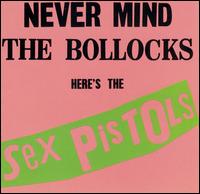


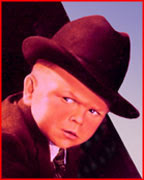
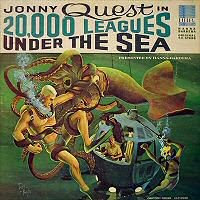






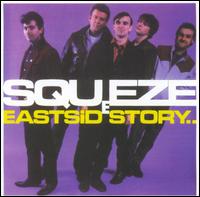





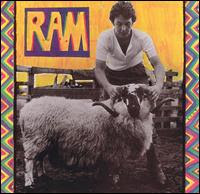




























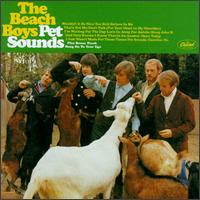





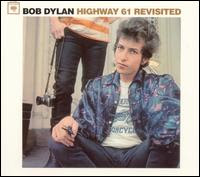




1 comment:
Great comment! Hope Jacko comes back for more!
Post a Comment